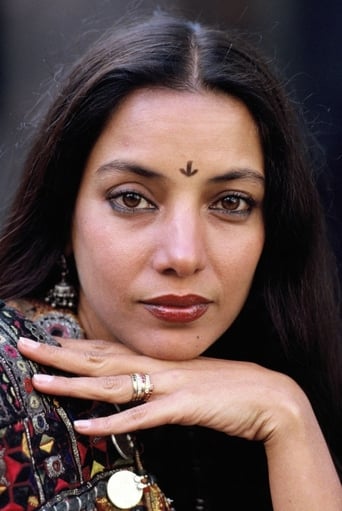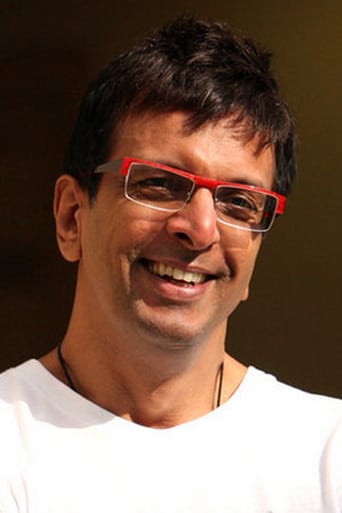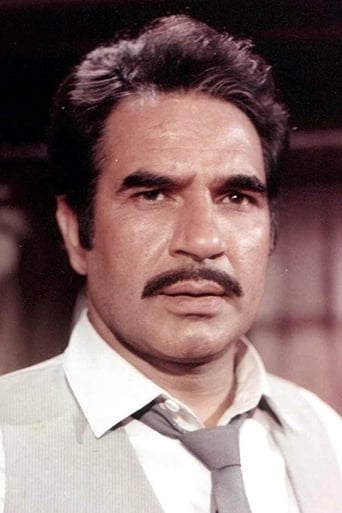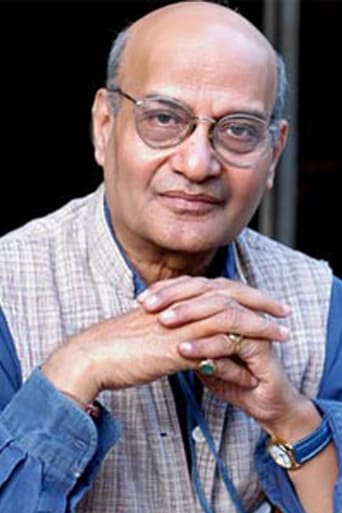Pluskylang
Great Film overall
AutCuddly
Great movie! If you want to be entertained and have a few good laughs, see this movie. The music is also very good,
Sameer Callahan
It really made me laugh, but for some moments I was tearing up because I could relate so much.
Dana
An old-fashioned movie made with new-fashioned finesse.
crappydoo
Few movies have dashed expectations and upset me as much as Fire has. The movie is pretentious garbage. It does not achieve anything at an artistic level. The only thing it managed to receive is a ban in India. If only it was because of the poor quality of film making rather than the topical controversy, the ban would have been more justifiable.Now that I've got my distress out of my system, I am more able to analyse the movie: * From the onset the movie feels unreal especially when the protagonists start conversing in English. The director, of course, did not make the movie for an Indian audience; however it underestimated its international audiences by over simplifying it. Watching the character of the domestic help conversing in perfect English is too unreal to be true.* Next we get regular glimpses into Radha's dreams. These scenes are not very effective. They coming up as jarring and obstruct the flow of the movie. I'm still wondering how that philosophical dialogue connected to the story. I felt that the surrealism was lost.* The love scenes felt voyeuristic and are probably meant for audience titillation rather than being a powerful statement. In any case, they do not achieve either of the two.* The names chosen for the women, Radha and Sita, are names of Hindu deities and hence been selected to shock the audiences. However, since the film wasn't meant for Indian audiences in the first place, the shock-through-name-selection is not meant to achieve its goal, which is absurd.* The quality of direction is very poor and some key and delicate scenes have been poorly handled. A better director could have made a powerful emotional drama out of the subject.* The acting felt wooden although Nandita Das brought some life into the role, the others were wasted. I always thought that Shabana Azmi was a good actress but her talent is not evident in this film. The male leads were outright rubbish.In case you are a fan of Earth and wish to see more of the director, stay away from this one. Please.
nycritic
There are questions that sometimes hover over us and have no answer. Two women progressively find themselves ensnared in each other's arms (as corny as the expression sounds, that is exactly what happens) and fins that they cannot answer their own question as to what defines their relationship when their very own society has no name to what they are. Deepa Mehta's somewhat mis-titled FIRE is the first of a loosely connected trilogy, here linked by the theme of the elements, and more symbolic than consuming. Fire as uncontrolled erotic passion does not make an appearance here, since the women -- the older and more feminine Radha (Shabana Azmi) and the younger, more masculine tempered Sita (Nandita Das) come to realize they share a lot more than common ideas and affection for each other and stand for what they believe is their passion for each other despite the opposition faced by their very traditional husbands and families. As in WATER, FIRE is deeply spiritual, even if it technically falls into the mode of sentimental melodrama (where WATER, much like the weight of the word, carries a stronger meaning that ultimately transcends its definition). Even so, it's a very beautiful picture, and a strong voice from a strong director.
sspinola-1
one of best movies ever...Fire...it is not much about sociological description of India today...it is the mind blowing use of light that never stops, never becomes...normal...even when...in this sense the movie is almost unique...both leads are of very good quality...the origin of Das as a street performer are pretty obvious...her performance is a superb "cammeo"...but the use of the light...I have look at it and looked at it, again and again...still mind blowing after ages...nothing torrid in the story...rather "pure" way of facing the subject...in a way it is sad that in the bizarre world we live today, a major art work is usually known as a gender film...Fire can stand face to face with Dryer's Jeanne D' Arc or Ichikawa's Biruma no Tategoto or some of the major Kurosawa movies, just to name "some". Wish my input could help a little this movie to its deserved way to fame.
Nuwan Sen
'Water' (2005), the final part of Toronto-based Indian film-director Deepa Mehta's elemental trilogy has been finally completed, almost ten years after the release of the very first controversial element, 'Fire' (1996), which was followed with a slightly lesser controversial sequel '1947: Earth' (1998). Mehta made her directorial debut with a 24-minute Canadian short film 'At 99: A Portrait of Louise Tandy Murch' (1975), but it was her Canadian feature film about the life of Indians living in Canada that brought her fame back in east, her country by birthright, 'Sam & Me' (1991). Recognition internationally came in the way of 'Camilla' (1994), starring Bridget Fonda, along with the actress who in 1990 won an Oscar in Best Actress in a Leading Role category at the age of 80, paving the way for middle-aged actresses to still have hope, for her portrayal of a stubborn old Jewish woman in 'Driving Miss Daisy' (1989), late Jessica Tandy. 'Camilla' dealt with a friendship between two women from two other ends of the human lifespan, a May/December friendship. 'Camilla' was Tandy's last picture; she died the very same year.International fame followed Deepa Mehta in 1996 with the release of the controversial 'Fire', which spread with rage among the false patriotic consciousness existing Indian extremist. Having already explored friendship between two women in 'Camilla', in 'Fire' Mehta went a step further to portray a more intimate relationship between two lonely neglected women. Set in modern day India, the suburbs of the capital city of New Delhi, it shows two brothers and their wives, the elder brother (Kulbhushan Kharbanda) having joined a weird Hindu sect leads a life of celibacy, faithful to his guru of sexless existence. The younger brother (Javed Jaffrey) is having an extra marital affair with a Chinese woman (Alice Poon). Thus, both the wives, Shabana Azmi playing the elder brothers wife and Nandita Das the younger wife, find themselves neglected in their own way. One forced to lead a celibate life, thanks to her husband's eccentricities, and the other whose only interaction with her husband is through sex, and nothing more. Living in a world of in-laws and being the only two outsiders in the family, having nobody else to confide in, the two women fall in the arms of each other. Thus comes the issue of lesbianism. If there were an outside man's shoulder to cry on, there most probably would have been chance for them to fall into the arms of a man, but having no one else to confide in, their need for each others support is quite obvious. It does not necessarily state that all neglected women would end up taking lesbianism, it just happened to exist with regard to the two women in this context. All in all, the movie is excellent, and delves far deeper than just two women rolling in bed. The key focus isn't lesbianism in the movie, but the plight of modern day neglected Indian wives, even in the capital city, the two female characters just happen to have a sexual relationship. Two years later, Deepa Mehta's second installment was the element of mother earth, released in India by the name of '1947: Earth',yet another excellent movie by a great director, this time in the Hindi language, unlike 'Fire', which was made in the English language. Now Deepa Mehta has managed to complete the trilogy, despite a lot of problems, having released the final installment recently, 'Water'. No doubt it would be just as great as the other two.






